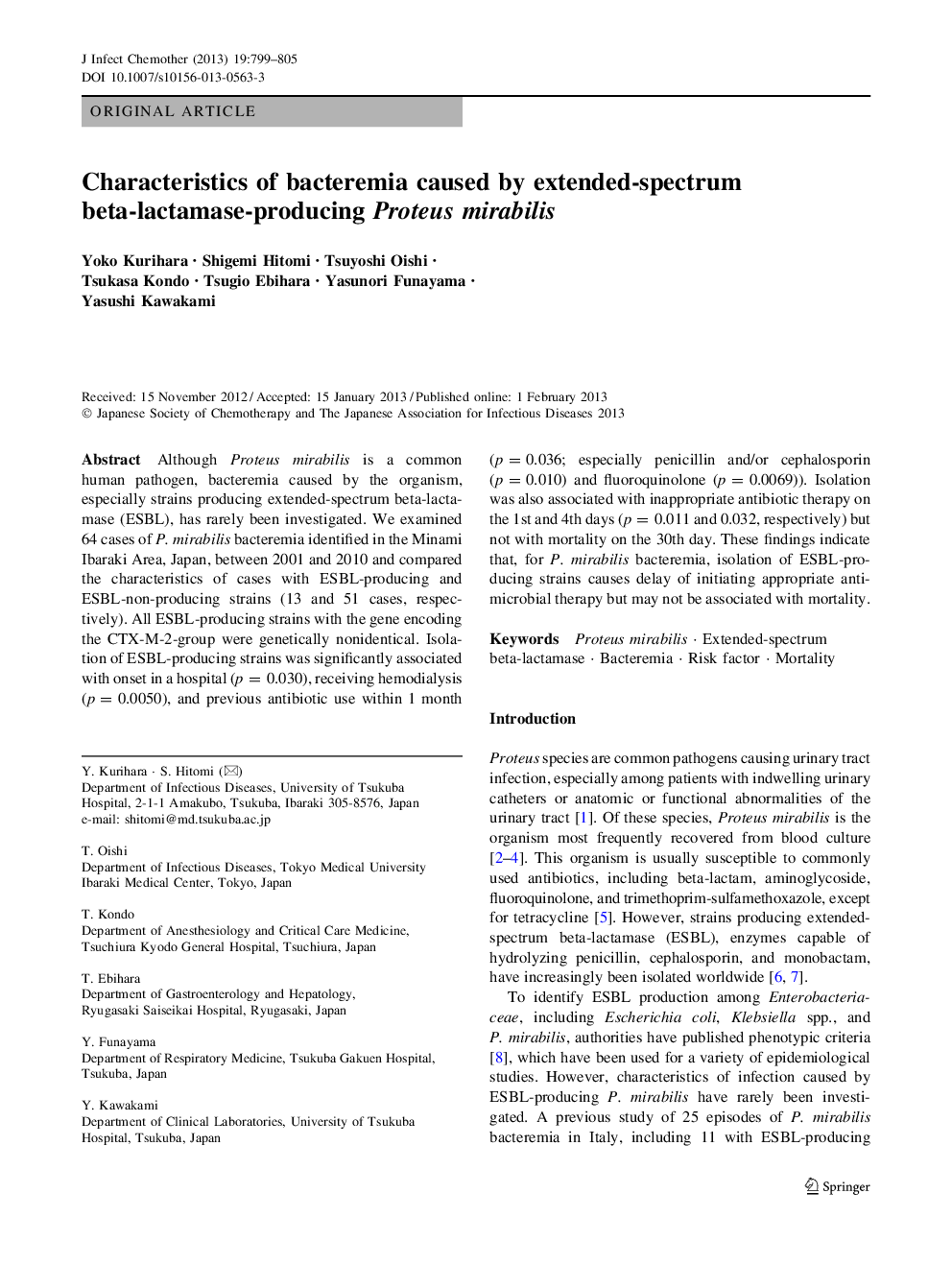| Article ID | Journal | Published Year | Pages | File Type |
|---|---|---|---|---|
| 6123788 | Journal of Infection and Chemotherapy | 2013 | 7 Pages |
Abstract
Although Proteus mirabilis is a common human pathogen, bacteremia caused by the organism, especially strains producing extended-spectrum beta-lactamase (ESBL), has rarely been investigated. We examined 64 cases of P. mirabilis bacteremia identified in the Minami Ibaraki Area, Japan, between 2001 and 2010 and compared the characteristics of cases with ESBL-producing and ESBL-non-producing strains (13 and 51 cases, respectively). All ESBL-producing strains with the gene encoding the CTX-M-2-group were genetically nonidentical. Isolation of ESBL-producing strains was significantly associated with onset in a hospital (p = 0.030), receiving hemodialysis (p = 0.0050), and previous antibiotic use within 1 month (p = 0.036; especially penicillin and/or cephalosporin (p = 0.010) and fluoroquinolone (p = 0.0069)). Isolation was also associated with inappropriate antibiotic therapy on the 1st and 4th days (p = 0.011 and 0.032, respectively) but not with mortality on the 30th day. These findings indicate that, for P. mirabilis bacteremia, isolation of ESBL-producing strains causes delay of initiating appropriate antimicrobial therapy but may not be associated with mortality.
Related Topics
Life Sciences
Immunology and Microbiology
Applied Microbiology and Biotechnology
Authors
Yoko Kurihara, Shigemi Hitomi, Tsuyoshi Oishi, Tsukasa Kondo, Tsugio Ebihara, Yasunori Funayama, Yasushi Kawakami,
